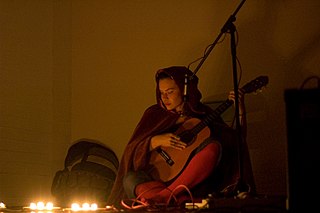A Quote by Catherine Wilson
Some critics thought the ontology and theory of qualities absurd. No one had ever seen these little atoms, and furthermore, how could their mere arrangement produce a noisy, colourful, world in which day followed night and animals generated their own kind? Instead of a world created, cared, for and supervised by supernatural persons, the Epicureans appeared to the theologians to be assigning everything to chance. The latter were appalled by Lucretius's view of religion as cruel and oppressive and by the Epicurean insistence that death is the end of all experience.
Quote Topics
Absurd
Animals
Appalled
Appeared
Arrangement
Atoms
Cared
Chance
Colourful
Could
Created
Critics
Cruel
Day
Death
End
Epicurean
Ever
Everything
Experience
Followed
Furthermore
Had
How
Insistence
Instead
Kind
Latter
Little
Mere
Night
Noisy
Ontology
Oppressive
Own
Persons
Produce
Qualities
Religion
Seen
Some
Supernatural
Theologians
Theory
Thought
View
Were
Which
World
Related Quotes
Leibniz accepted the argument that there must be indestructible simple entities if there is to be a complex world, but Epicurean morals and politics and anti-theology dismayed him. His 'monadology' which said that the true atoms of nature were unextended 'living mirrors,' was an imaginative and beautiful system, and even in many ways more modern than Epicurean atomism, than Epicurean atomism, but there was a reactionary aspect to it.
When we blew the first atomic bomb at White Sands near the end of the war, nobody knew what was going to happen. There was a theory that the chain reaction would continue forever. And we would have created a little tiny sun out there in the desert that would burn until the end of the universe. It wasn't a widely held theory but it was a theory that nobody had a way of disproving. There were people who thought it wouldn't go off at all, that it would simply sit out there and melt and produce a great big dirty cloud of radioactivity. Nobody knew.
That’s what death did, it treated you like a child, like everything you had ever thought and done and cared about was just a child’s game, to be crumpled up and thrown away when it was over. It didn’t matter. Death didn’t respect you. Death thought you were bullshit, and it wanted to make sure you knew it.
What if all those strange and unexplainable bends in history were the result of supernatural interference? At which point I asked myself, what's the weirdest most eccentric historical phenomenon of them all? Answer:the Great British Empire. Clearly, one tiny little island could only conquer half the known world with supernatural aid. Those absurd Victorian manners and ridiculous fashions were obviously dictated by vampires. And, without a doubt, the British army regimental system functions on werewolf pack dynamics.
I was a late bloomer, but I had a career as a contemporary dancer before that, so I had some kind of connection to this world. But I was always a little more in love with the drama of dancing than the aesthetics, so I thought, 'Why don't you give it a chance if you think you can do it a little different?'
Everything happens through immutable laws, ...everything is necessary... There are, some persons say, some events which are necessary and others which are not. It would be very comic that one part of the world was arranged, and the other were not; that one part of what happens had to happen and that another part of what happens did not have to happen. If one looks closely at it, one sees that the doctrine contrary to that of destiny is absurd; but there are many people destined to reason badly; others not to reason at all others to persecute those who reason.
A God who kept tinkering with the universe was absurd; a God who interfered with human freedom and creativity was a tyrant. If God is seen as a self in a world of his own, an ego that relates to a thought, a cause separate from its effect, he becomes a being, not Being itself. An omnipotent, all?knowing tyrant is not so different from earthly dictators who make everything and everybody mere cogs in the machine which they controlled. An atheism that rejects such a God is amply justified.
I've always been curious about people's psychedelic experiences, and I kind of had this assumption that I was going to have some kind of crazy mindblowing psychedelia thing happening, but actually, it was very quiet, and I didn't have any hallucinations at all. Nothing changed, except that suddenly I could hear the voice of my conscience, which I didn't ever think of as being a real voice. And ever since having that experience, I've had that voice in my head and followed it occasionally.
The bipolar world of the Cold War is history. The new world order, however, is not the One World dreamed of by Wilsonian idealists. It is a Balkanizing world where race, tribe, culture and creed matter most, and democracy is seen not as an end in itself but as a means to an end - the accretion of power by one's own kind to achieve one's own dreams.
Religion is based ... mainly upon fear ... fear of the mysterious, fear of defeat, fear of death. Fear is the parent of cruelty, and therefore it is no wonder if cruelty and religion have gone hand in hand. My own view on religion is that of Lucretius. I regard it as a disease born of fear and as a source of untold misery to the human race.
Religion! How it dominates man's mind, how it humiliates and degrades his soul. God is everything, man is nothing, says religion.But out of that nothing God has created a kingdom so despotic, so tyrannical, so cruel, so terribly exacting that naught but gloom and tears and blood have ruled the world since gods began.































